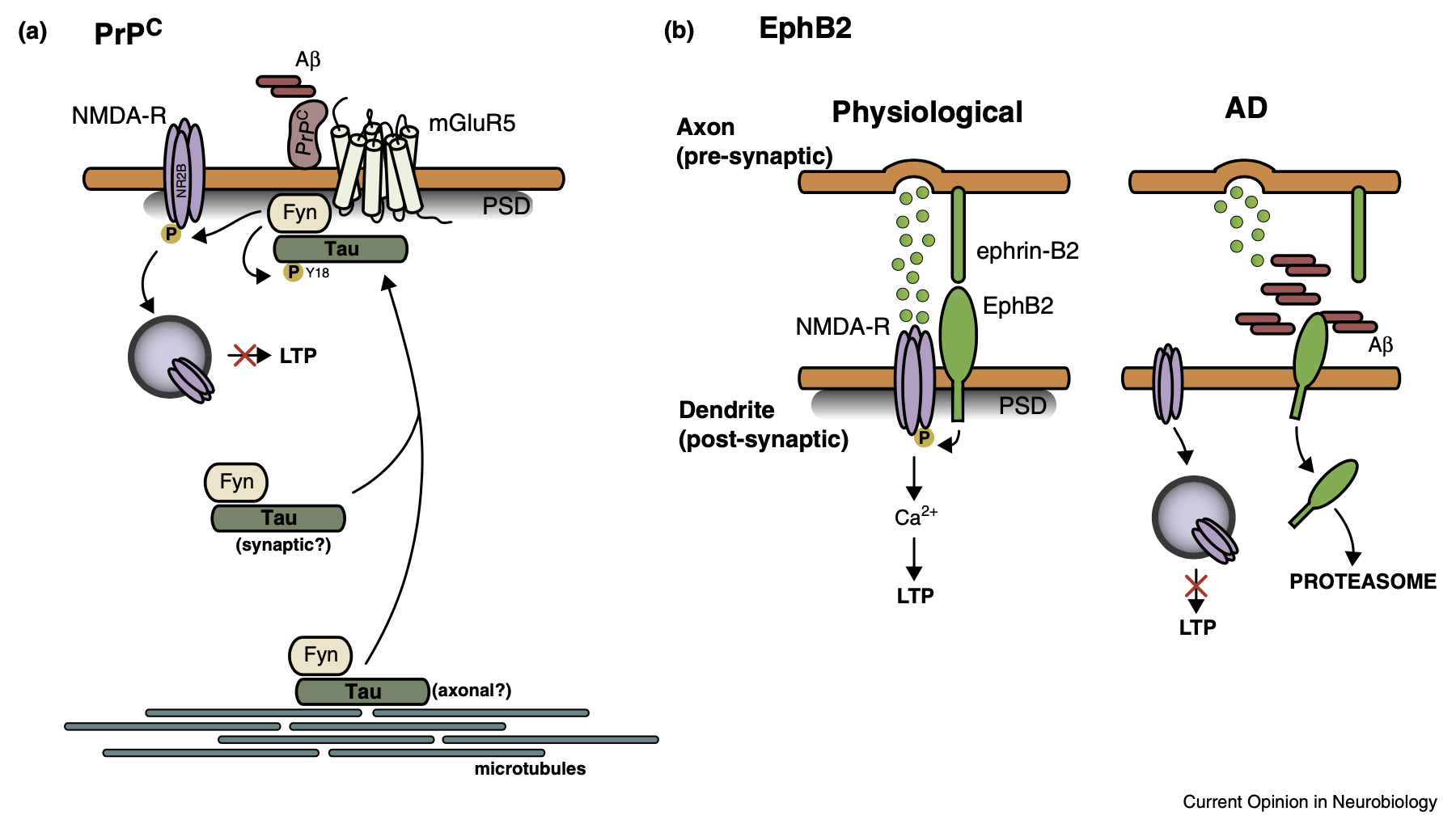Alzheimer’s disease (AD) is the most prevalent cause of dementia, affecting more than 25 million people worldwide. Current models of the pathophysiological mechanisms of AD suggest that the accumulation of soluble oligomeric forms of amyloid-b (Ab) peptides causes early loss of excitatory synapses and impairs synaptic plasticity. The signaling pathways mediating Ab oligomer-induced impairment of synaptic plasticity and loss of excitatory synapses are only beginning to be unraveled. Here, we review recent evidence supporting the critical contribution of conserved ‘stress– response’ kinase pathways in AD progression.
